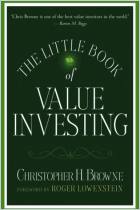Melden Sie sich bei getAbstract an, um die Zusammenfassung zu erhalten.

Melden Sie sich bei getAbstract an, um die Zusammenfassung zu erhalten.
Timothy P. Vick
Wall Street on Sale
How to Beat the Market As a Value Investor
McGraw-Hill, 1999
Was ist drin?
The lessons are here; don’t learn them the hard way.
Recommendation
The bull market has turned value investing into the neglected stepchild of wealth-building strategies. Tech companies have been big winners, and even value investing icon Warren Buffett has fallen on tough times. Still, Timothy P. Vick makes a compelling case for value investing. He dismisses such strategies as timing the market and chasing hot sector stocks as more gambling than investing. Vick argues that investors should seek bargain stocks by studiously researching companies and finding those whose current assets and future growth are undervalued by the market. Vick’s useful rules for value investing include this first axiom: You buy cars and clothes on sale, so why not stocks? He lays out tools for determining when a stock is on sale, such as calculating return on equity and profit margins. While the subject matter is arcane, the way Vick conveys his message is easy to understand. getAbstract recommends this book to investors on all levels (and it’s far more cheery than the news from the market).
Summary
About the Author
Timothy P. Vick is founder and editor of Today’s Value Investor, a stock newsletter published in Hammond, Indiana. Vick worked as a journalist in Chicago before becoming a stock analyst. He also wrote Lessons for the Individual Investor, published in 1997. Vick has a bachelor’s degree in history from Ball State University and an MBA from Purdue University. He lives in Munster, Indiana.




























Comment on this summary